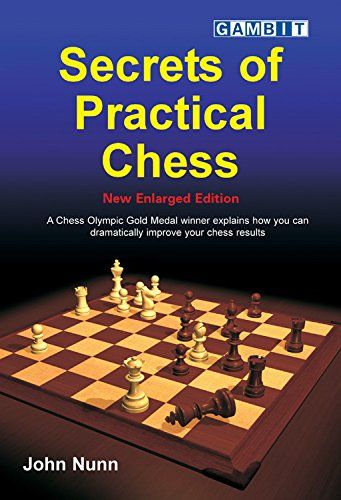
Secrets Of Internet Chess
If you are a true chess aficionado, then your personal chess library probably has one of many books written by GM John Nunn. You cannot go wrong buying any book written by this author since all of them are of the highest quality. Yet one of them stands out, in my opinion: "Secrets Of Practical Chess" should be a chess bible for any tournament player.

Nunn explains all of the do's and don'ts of chess preparation from openings to endgames. The book was written over 20 years ago, and the chess world is quite different now. Chess moved to the Internet (especially now, during the time of COVID-19), and I would like to discuss how our favorite website can help you to become the ultimate tournament fighter!
The first chapter of Nunn's book is called "At The Board". The author discusses the decision-making process and multiple aspects of chess. It goes without saying that the most important topic for most club players are blunders and how to avoid them. The following famous game is given in the book as an example. Can you find the best move for White?
We discussed this topic in the series of articles "How To Avoid Blunders". You can raise your blunder detection skills to a new level by practicing Puzzle Rush and Puzzles. Then you'll instantly punish your opponents for blunders like this:
The second chapter of Nunn's book is "The Opening". The author asks the question "Once you have chosen your openings, what is the best way to study them?" Then he provides his answer: "There is nothing better than a good book."
While this could be the absolute truth 20+ years ago, these days Chess.com's opening explorer can challenge Dr. Nunn's statement. This powerful tool can even help you to solve a mystery. ![]()
Let's say you are wondering if there was a method in Carlsen's recent madness (annotations by Peter Doggers):
The opening explorer will show you that the World Champion just tried to improve a 2181 player's moves. He failed.
The third chapter of Nunn's book, "Middlegame", deals with such important topics as "Good positions," "Bad positions," "Attack" and "Defense." You can find all of these topics and much more in Chess.com lessons.
You can also practice your skills using drills. For example, your opponent just sacrificed a bishop. "Oh my God, it is the notorious Greek's Gift Sacrifice", you would think during the game. Or maybe even something like "Should I resign now?", might cross your mind.
No worries, practice this and similar test positions at drills, and you'll be prepared to defend any position! Lessons and drills can also greatly improve your endgame skills.



